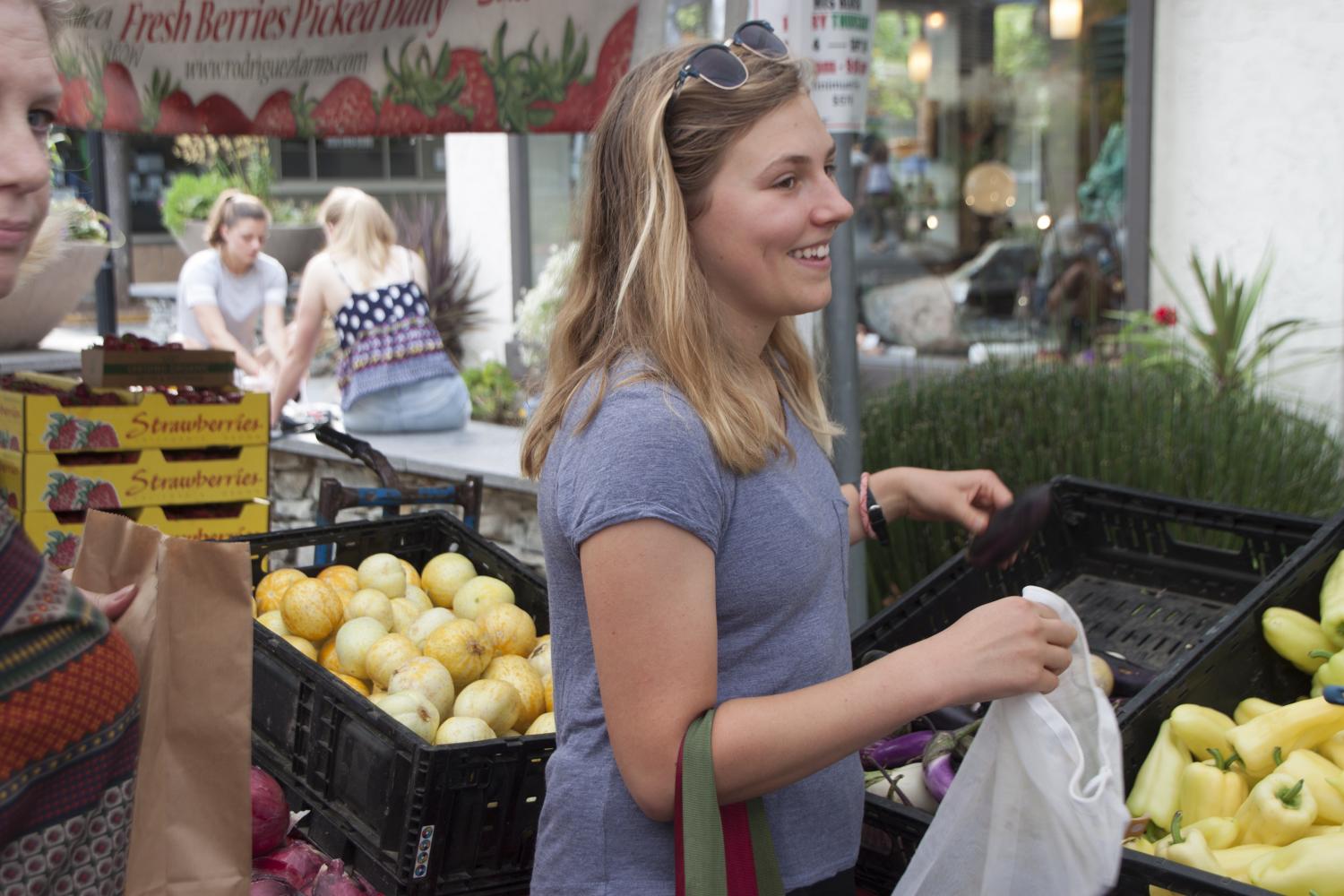Zero waste with Zanny Zellers
August 15, 2017
Standing waist deep in a dumpster long after sunset may seem like a night gone wrong, but for senior Zanny Zellers, it’s exactly where she wants to be.
After hearing the news two weeks ago that the recreation center where she works would be demolished, Zanny spent her days at work watching her coworkers carry fully-functioning items to the trash. Knowing they would be driven away to become part of another heap in another landfill, Zanny enlisted the help of her mom and returned to the dumpster at night.
She rummaged through bins three nights in one week to fill the back of her mom’s car with objects she could donate, a pair of CPR dummies and a three-foot tall Purell dispenser among them. The loads of trash now sit in piles on Zanny’s porch, which grow smaller as she welcomes people who are interested in the recovered objects to take their pick.
Before Zanny began running her own informal recycling business off her front porch, she was a consumer of short-lived products. Like many, she roamed the fluorescent-lit racks of Forever 21 hoping to find the latest trends in clothing for the cheapest prices — regardless of how soon they would be tossed due to their poor quality.
Her first doubts about her shopping practices emerged after a few weeks of AP Environmental Science at Los Altos.
“[AP Environmental Science] just made me feel really guilty,” Zanny said. “[I realized] we’re just a very small part of history and yet we’re creating all this havoc with all the waste behind us. It would cause me to like go home and do my own research.”
Beyond finding statistics and stories about how people are poisoning the Earth, Zanny also discovered the stories of people who changed their lifestyles to combat the abuse on nature. Videos by people who live zero-trash lifestyles began to flood Zanny’s YouTube history, and she decided to follow their leads in her own life.
Zanny began by reusing the trash she came across whenever she could. An empty cottage cheese container became a take-out box, plastic water bottles became an irrigation system for her plants, and tin foil became an accent for an art project. She took the items people didn’t give a second glance and gave them a second purpose, but reusing trash was not enough. She wanted to strive for a zero-waste lifestyle, too.
Beyond using reusable bags to shop, Zanny also changed the places she got food to reduce the amount of trash she produced. She prefers buying grains at Whole Foods over Trader Joe’s, for instance, as the dispensers at Whole Foods allow her to bring her own reusable jar as packaging. She also buys often at farmers’ markets, where she can pick up free carrot tops for her rabbits and avoid the stickers found on produce at established stores.
Despite her efforts, some food Zanny must buy is not trash-free. She purchases each of these begrudgingly.
“Sometimes there’s food I want to buy that you can only get in trash,” Zanny said. Then she corrected herself, “In packaging, I mean.”
These changes to her lifestyle bring new challenges. Zanny currently sits in a stalemate with her mom over oatmeal. Her mom buys oatmeal from Costco due to its cost efficiency, however Zanny stands her ground by continuing to buy the no-trash, albeit more expensive, oatmeal from Whole Foods. Neither one will eat the other oatmeal, and both continue to purchase their preferred brand.
Zanny also wishes for people to make the decision to live trash-conscious lives on their own, and she refuses to force those around her to make the same choices she does. Rather, she will do her dumpster diving at night in the dark instead of shaming her coworkers, and she sends her message through leading by example instead of preaching.
“I try to encourage people in positive ways by showing and not telling,” Zanny said. “It’s the little things; I feel like if people see you around like with cloth bags over plastic bags, it’s a little thing you notice.”
While Zanny attempts to keep the impact she has on other people to mere suggestion, going green has taken over the way she views the world.
“It’s not even a hobby any more, it’s an addiction,” Zanny said.
Becoming more eco-friendly has changed everything from her sense of humor (she is disheartened when people refer to themselves as “trash”) to her choice in clothing. After donating clothes she no longer wore to Goodwill, Zanny discovered the environmentally-friendly ways of thrift shopping. Trading out her on-trend, low-quality clothes for well-loved and sturdy articles gave Zanny an idea of how to channel her passion for protecting the earth into a career.
In the future, Zanny wishes to open up her own thrift store. Designed to ease the transition from fast fashion to thrift shopping for consumers, Zanny wants her store to be a learning as well as a shopping experience.
With a welcoming ambience and an open invitation to ask questions about eco-friendly practices, Zanny hopes her store will inspire others to reduce the amount of trash they produce and work together to reduce the size of landfills.
“If everyone did this, we could create our own little heaven: a green heaven,” Zanny said.




